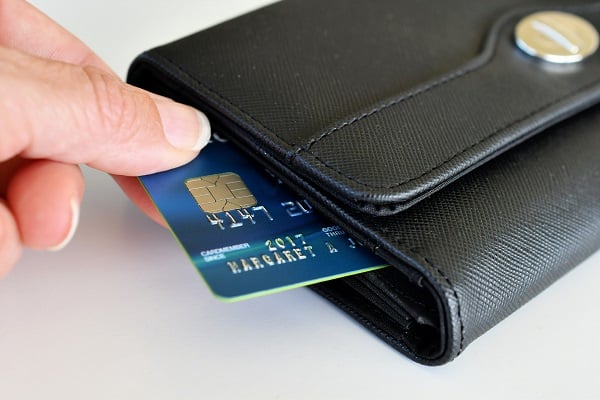In the landscape of personal finance, credit cards often serve as powerful tools, if used judiciously. Understanding the multifaceted world of credit cards can be a game changer in managing money and paving the way towards financial stability. These small pieces of plastic come with their unique blend of advantages and pitfalls, but mastering them can lead to a healthier financial life. This blog post aims to unravel the complexities of credit cards, highlighting their benefits and cautioning about potential dangers.
Contents
- The Benefits Of Credit Cards
- Establishing Credit History
- Convenience And Security
- Rewards And Cashbacks
- Managing Cash Flow
- The Pitfalls Of Credit Cards
- High-Interest Rates and Fees
- Overspending Tendencies
- Negative Impact On Credit Score
- Predatory Lending Practices
- Consider Both The Benefits Of Pitfalls Of Credit Cards!
- Related
The Benefits Of Credit Cards
Credit cards offer a range of advantages that go beyond mere convenience. In this section, we’ll explore how these plastic companions can provide you with financial flexibility and protection, helping you make the most of your purchases while offering valuable perks.
Establishing Credit History

Credit cards can be instrumental in building a solid credit history. A credit history is an important determinant of financial health and has implications on the ability to secure loans or mortgages in the future. Maintaining a positive track record with credit card payments contributes significantly to this aspect. Regular use and timely repayment of credit cards signal to lenders the creditworthiness of an individual, thereby facilitating loans at competitive interest rates.
While establishing credit history is advantageous, it is essential to ensure responsible usage. Irresponsible use, such as making late payments or defaulting on payments altogether, can lead to a negative credit history. In the long run, these actions can impair the ability to secure future loans and may even increase the interest rates charged on these loans.
Convenience And Security

The advent of credit cards has brought unparalleled convenience to financial transactions. These cards eliminate the need to carry large sums of cash and offer a secure method of transaction. The need to remember specific denominations of cash is replaced by the simplicity of a single swipe or tap. Additionally, credit cards have embedded security features that protect the user against fraudulent transactions, making them an even more attractive alternative to cash.
The safety offered by credit cards extends to online transactions as well. With online shopping becoming increasingly prevalent, the risk of fraud rises. Credit card companies have robust systems in place to detect and prevent fraud, giving the user peace of mind while transacting online. These protective measures have proven invaluable, especially in the digital era.
Rewards And Cashbacks

The opportunity to earn rewards and cashbacks is another compelling reason to use credit cards. Many card issuers offer attractive rewards programs, including cashback, frequent flyer miles, and points that can be redeemed for a variety of products or services. These programs can lead to substantial savings for regular spenders, especially when they align their spending habits with the rewards categories on their cards.
While these rewards and cashbacks can indeed be beneficial, it is important not to let them encourage excessive spending. The key is to use the card for planned and budgeted expenses and not to increase spending solely to earn rewards. Ultimately, the costs associated with high-interest credit card debt can quickly outweigh the value of the rewards earned.
Managing Cash Flow

Credit cards can serve as an essential tool in managing cash flow effectively. They provide the flexibility of making purchases now and paying off the amount over time, offering a buffer during unexpected expenses or financial crunches. By responsibly utilizing this aspect, consumers can maintain their financial stability while meeting their needs.
However, this flexibility should not be misconstrued as an excuse for reckless spending. It is important to remember that the borrowed amount needs to be repaid eventually, often with interest. Over-reliance on credit cards for regular expenses could lead to a dangerous cycle of debt, defeating the purpose of effective cash flow management.
The Pitfalls Of Credit Cards
While credit cards can be a convenient financial tool, they also come with potential pitfalls that can trap unwary users in a cycle of debt. In this section, we’ll delve into the common pitfalls of credit cards, such as high interest rates and impulsive spending, and provide tips on how to avoid falling into these traps.
High-Interest Rates and Fees

Although credit cards offer numerous benefits, they often come with high interest rates and fees. These charges can lead to inflated repayments if the balance isn’t paid in full each month. Hidden fees, such as annual fees, late payment fees, and foreign transaction fees, can further increase the cost of credit card ownership.
To mitigate this pitfall, individuals need to scrutinize the terms and conditions of their credit card agreements. Understanding the interest rates and all potential fees is crucial. Additionally, maintaining a habit of paying off the full balance each month can prevent the accrual of high interest.
Overspending Tendencies

The convenience of credit cards often encourages impulse purchases and overspending. When one is not handing over physical cash, it is easier to lose track of how much has been spent. This convenience can sometimes blur the line between needs and wants, leading to financial instability.
To combat this, implementing a budget and sticking to it is crucial. Tracking credit card expenses regularly can also keep spending in check. This practice will promote responsible use of credit cards, preventing them from becoming a financial burden.
Negative Impact On Credit Score

The misuse of credit cards can have a detrimental impact on your credit score. Late payments, high credit utilization, and defaults are all factors that can negatively influence credit scores. A poor credit score can create complications for future loan applications and may even affect employment opportunities in certain sectors.
Responsible credit card usage involves timely payments, maintaining a low credit utilization ratio, and avoiding defaults. It’s important to regularly monitor credit reports to ensure accuracy and spot any potential issues before they escalate.
Predatory Lending Practices

Some credit card companies employ predatory practices that can trap unsuspecting customers. These practices include unclear terms and conditions, high-interest rates, and excessive fees. Falling prey to such practices can lead to unnecessary financial distress.
Consumers need to be vigilant while selecting credit card issuers. Reading and understanding all the terms and conditions, researching the company’s reputation, and comparing different credit card offers can help avoid falling into a trap.
Consider Both The Benefits Of Pitfalls Of Credit Cards!
Navigating the world of credit cards involves understanding their benefits and recognizing potential pitfalls. When used responsibly, these financial tools can offer numerous advantages, from building credit history to offering rewards and easing cash flow management. On the flip side, the risks of high-interest rates, overspending tendencies, negative impacts on credit scores, and predatory lending practices necessitate caution and educated decision-making. By keeping these factors in mind, one can truly master the use of credit cards and steer towards financial stability.
